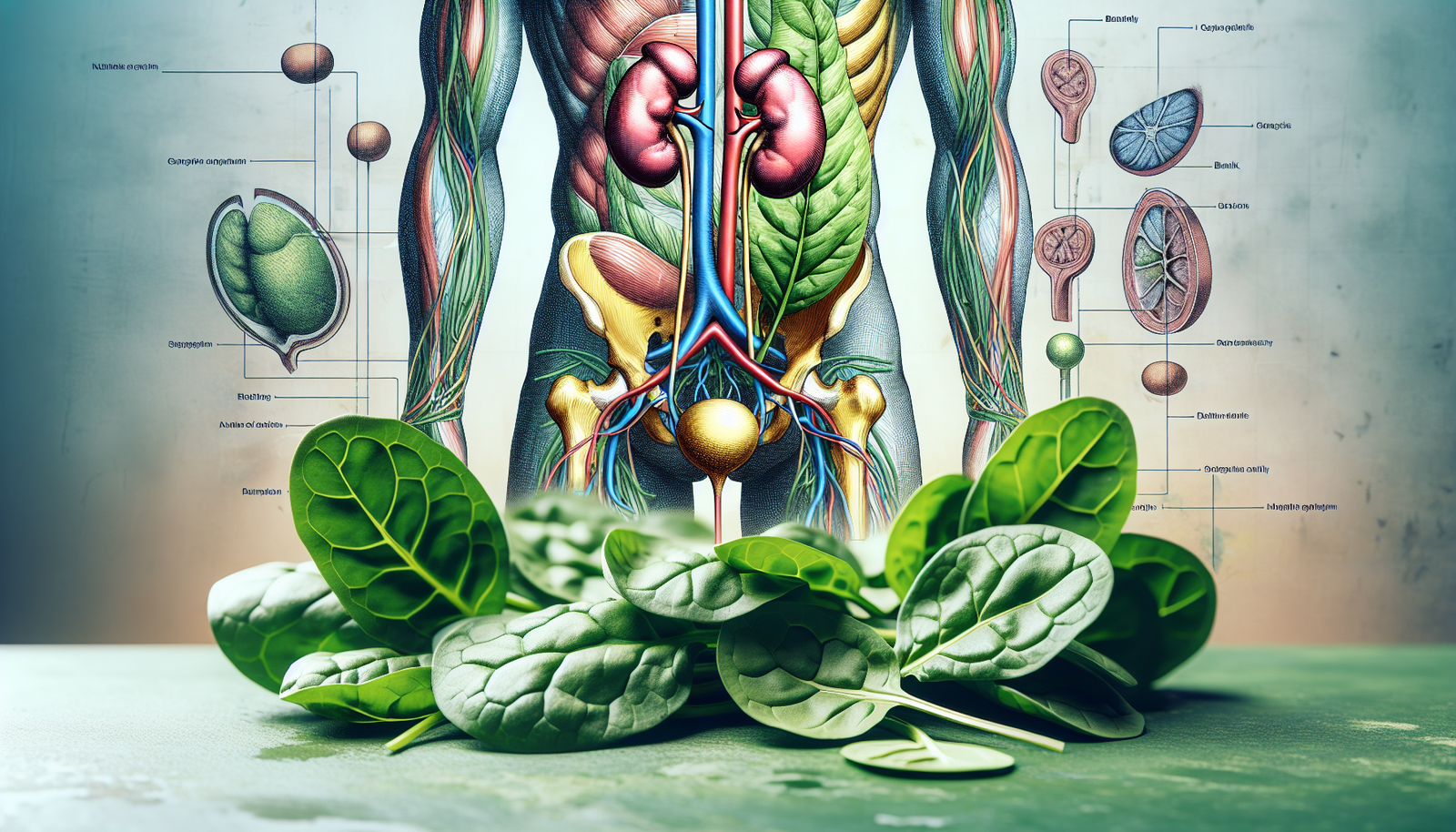Have you ever wondered why you might be experiencing bladder issues, despite feeling like you’re doing everything right with your diet and lifestyle? It’s a frustrating situation, isn’t it? One potential culprit that’s gaining attention is oxalates. But what exactly are they, and could they really be influencing your bladder health?
Understanding Oxalates
Oxalates are naturally occurring compounds found in various foods. They can bind with minerals in your body, particularly calcium, forming crystals. While most healthy individuals can process and eliminate oxalates without issue, those with certain conditions might struggle, and that’s where the connection to bladder dysfunction becomes intriguing.
The Sources of Oxalates
Oxalates are found in a wide range of foods. Some common sources include:
- Spinach
- Beets
- Nuts and seeds
- Sweet potatoes
- Rhubarb
Knowing where oxalates lurk can help you better manage your diet. If you’ve been advised to watch your oxalate intake or if you suspect they could be affecting your health, it’s essential to keep track of what you consume.
Why Should You Care About Oxalates?
For most people, the body eliminates oxalates without any issues. However, some individuals may have a genetic predisposition to absorb and retain more oxalates. This accumulation can lead to the formation of kidney stones and, potentially, bladder dysfunction. If you experience symptoms like increased urgency, frequency of urination, or discomfort, it may be time to analyze your oxalate intake.
The Connection Between Oxalates and Bladder Dysfunction
You might be wondering how oxalates can affect your bladder specifically. The bladder is designed to store urine until you’re ready to eliminate it. When oxalates accumulate in the body, they can lead to the formation of crystals in both the kidneys and the bladder, which may result in irritation and inflammation.
Symptoms of Bladder Dysfunction
If oxalates are causing trouble, you might experience several symptoms. Here’s a brief overview of common indicators:
| Symptom | Description |
|---|---|
| Frequent Urination | Needing to urinate more often than usual. |
| Urgency | A sudden, strong need to urinate. |
| Pain or Burning | Discomfort or burning sensation during urination. |
| Cloudy or Strong-Smelling Urine | Change in urine appearance or odor. |
| Blood in Urine | Presence of blood can indicate irritation or injury. |
Understanding these symptoms can give you a clearer picture of whether or not oxalates might be an issue for you.

Who’s at Risk?
While oxalates can affect anyone, certain groups of people are at a higher risk of experiencing bladder issues related to oxalate consumption. If you belong to any of the following categories, it’s worth paying attention:
Individuals with Kidney Issues
If you have a kidney condition, your body may struggle to filter and eliminate oxalates effectively, increasing the risk of stone formation and bladder problems.
Those with Gastrointestinal Diseases
Conditions like Crohn’s disease or celiac disease can affect how your body absorbs nutrients, potentially leading to excess oxalate in your system.
People Consuming High-Oxalate Diets
Simply eating too many high-oxalate foods can increase your risk. If your meals are predominantly plant-based and include lots of nuts or spinach, it may be time for a diet review.
Genetic Predisposition
Genetics can also play a role in how your body handles oxalates. Some people inherit conditions that cause higher oxalate levels or poor elimination.
The Role of Oxalates in Kidney Stones
Kidney stones are a common side effect of high oxalate levels, but how do they tie into bladder dysfunction? When these stones form, they can travel down the urinary tract. If a stone gets stuck in the bladder, it can cause irritation and lead to symptoms similar to those seen in bladder dysfunction.
Types of Kidney Stones
There are several types of kidney stones, and understanding them can shed light on the relationship between oxalates and bladder health:
| Type of Kidney Stone | Composition | Common Causes |
|---|---|---|
| Calcium Oxalate | Calcium and oxalate | High oxalate intake, dehydration |
| Struvite | Magnesium, ammonium, phosphate | Urinary infections |
| Uric Acid | Uric acid | Dehydration, high protein diets |
| Cystine | Cystine (an amino acid) | Genetic disorders |

Lifestyle Changes to Consider
If you think that oxalates may be contributing to your bladder dysfunction, there are several lifestyle changes you can make to alleviate symptoms and improve your overall health.
Adjust Your Diet
One of the most effective steps you can take is to lower your oxalate consumption. This doesn’t mean you have to eliminate all high-oxalate foods; rather, it’s about finding balance. Consider incorporating foods lower in oxalates, such as:
- Meat and poultry
- Fish
- Eggs
- Dairy products
- Most grains
Consulting a nutritionist can also provide you with personalized guidance based on your dietary preferences and requirements.
Stay Hydrated
Hydration is key to helping your body eliminate oxalates. Drinking adequate amounts of water can dilute oxalates in your urine and reduce the risk of stone formation. Aim for at least 8-10 cups of water daily, or more if you’re active or in hot climates.
Monitor Calcium Intake
It may sound counterintuitive, but getting enough calcium in your diet can actually help prevent oxalate absorption in your intestines. This means if you’re trying to reduce oxalate-related issues, instead of cutting out calcium-rich foods, consider including them in your meals. Opt for sources like yogurt, cheese, or leafy greens (not spinach, though!).
Consider Supplements
Some individuals may benefit from taking certain supplements. Magnesium and calcium supplements may help bind oxalates in the gut, reducing absorption. However, always consult with your healthcare provider before beginning any new supplement regimen.
When to Seek Help
If you’ve made dietary changes and are still experiencing troubling symptoms, don’t hesitate to seek professional help.
Consult a Healthcare Professional
A healthcare professional can help rule out other possible causes of your bladder dysfunction and suggest further testing or treatments. If kidney stones are suspected, imaging tests may be necessary to confirm their presence and size.
Urologist Visits
Sometimes, involving a urologist can provide more targeted insights into your bladder issues, especially if you’ve been experiencing chronic symptoms. They can offer specialized testing and treatment options tailored to your situation.

Managing Stress and Lifestyle Factors
You might be surprised to learn that stress can also influence bladder health. With everything going on in life, it’s essential to focus on your mental wellbeing as much as your physical health.
Techniques for Stress Management
- Exercise: Regular physical activity can relieve stress and help maintain a healthy weight.
- Mindfulness and Meditation: Practices such as yoga, meditation, or deep-breathing exercises can decrease your stress levels.
Creating a Comfortable Environment
Make sure your living environment is conducive to relaxation and stress relief. This can include decluttering your space, designating a calming corner for relaxation, and surrounding yourself with supportive friends and family.
In Conclusion
Navigating bladder dysfunction can feel overwhelming, especially when it seems like all the right steps aren’t yielding results. If you suspect that oxalates could be a contributing factor, there are various lifestyle changes to consider. Lowering oxalate intake, staying hydrated, monitoring calcium consumption, and managing stress are all important aspects of your journey.
Take charge of your health by being proactive. Connect with healthcare professionals for tailored guidance, and remember: you deserve to feel comfortable and confident in your body. Understanding the role of oxalates could be a crucial step towards achieving that comfort and managing any bladder-related issues effectively. Your health is your most significant treasure; don’t hesitate to protect it.


